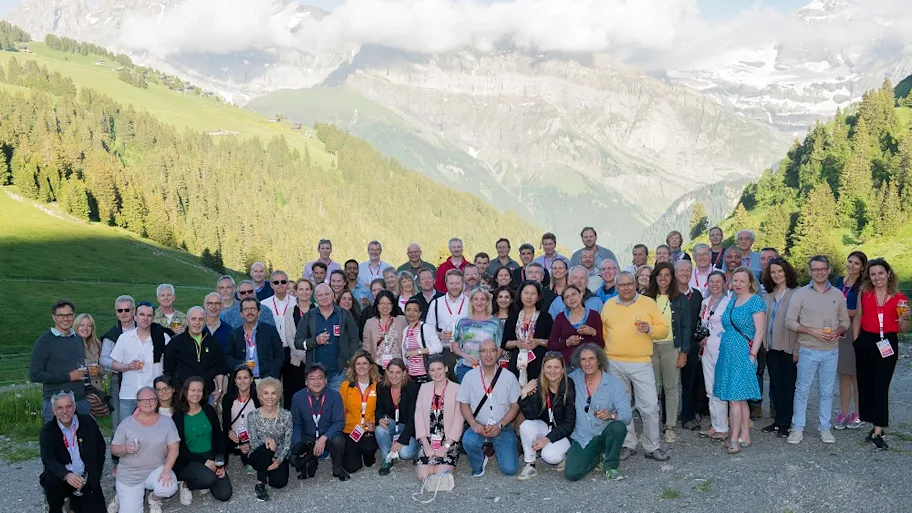
- Science News
- Frontiers news
- Frontiers 2nd Editors’ Summit: Science for sustainability
Frontiers 2nd Editors’ Summit: Science for sustainability
“Rapid and open dissemination of articles is necessary for the global change needed in the world’s urgent sustainability crisis. Frontiers empowers scientists in the publishing process to accelerate research communication and dissemination;” explained Kamila Markram, co-founder and CEO of Frontiers, in her opening speech at our 2nd annual Editors’ Summit.
On the weekend of June 18-19, over 40 Frontiers Editors from around the world gathered at Champéry, Switzerland, to discuss their work over the past year and look into the future of academic publishing, dissemination of knowledge and the role researchers play in helping to solve the global problems the world is facing today. The theme of this year’s Summit was global sustainability.
The EU announced that all research must be made freely available by 2020, and the group learned how open access will save billions of dollars of funding money, create waves of disruption, and lead to positive change including economic growth and wider, interdisciplinary scientific solutions to the global crisis.
However, it was the cost of traditional publishers’ rejection cascade that stirred up emotions when the group discussed how much time and money is wasted in just one year due to needless rejections of perfectly correct research articles – and how publishing all sound science will help get research out to the world quicker so that it can used and built upon while policies are still being discussed and funding decisions made.
Later the Editors discussed how research can help create a sustainable future, in a panel featuring world-class scientists from veterinary science, glaciology, plant and crop science, built environment and neuroscience.
It was agreed that academics and publishers can and should be a part of the solution through rapid and multi-level communication. In providing the necessary platforms for these forums, publishers also need to engage the business world, and encourage interdisciplinary solutions to a global problem. And as one Field Chief Editor said, instead of being many small voices, we should work together to be one large voice of change.
Along with discussions on sustainability, Editors were treated to presentations on Research Topics, building a leading journal and the next innovations in product development within Frontiers. Several excellent suggestions for further development were made by our Editors, and Frontiers will be running updates on how we are addressing these.
Despite the rain, and an abandoned hike in the Alps, the Summit was a great success and left people considering some big questions about how science can help sustain our future.
Here are some photographs of the event:
This slideshow requires JavaScript.
Thanks to all the Editors who attended:
Valerio Acocella, Rustam Aminov, Hazim Awbi, George Billman, Stefan Borgwardt, Angel Borja, Ranieri Cancedda, Manuel Carreiras, Mary Christopher, Egidio D‘Angelo, Eddy Davelaar, Javier DeFelipe, Mark Elgar, Lee Samuel Finn, Amanda Fisher, Richard Frackowiak, Théo Godfraind, Michel Goldman, Alex Hansen, Thomas Hanson, Joshua Heazlewood, Hauke Heekeren, Jeff Holly, Steven Huber, Martin Klotz, Ferdinand Köckerling, Rodrigo Kuljiš, Johannes le Coutre, James Lloyd, Joav Merrick, Michael Moritz, Sri Nagarajan, Annalisa Pastore, Diego Rubiales, Maria Sanchez, Idan Segev, Martin Siegert, Mel Slater, Berend Smit, Laura Spinney, Giovanna Suzzi, Izuru Takewaki, Hendrik Tevaearai Stahel, Kath Woodward and Marcel Zentner.






